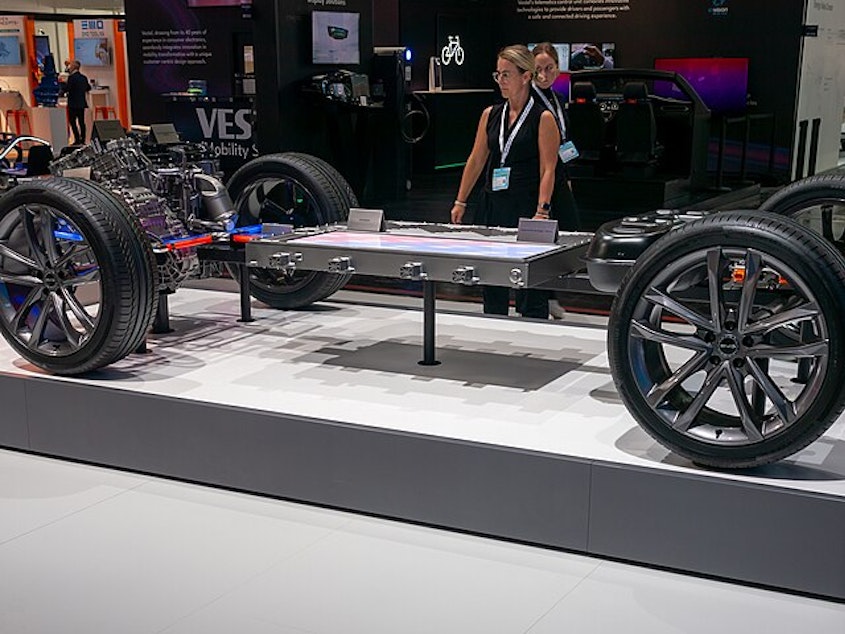Washington vs China: Why the NW could have the next generation of battery tech

China makes most of the world's car batteries. Washington could play a big role in helping the U.S. surpass China.
As the auto industry advances toward an electric vehicle future, China is currently the world leader when it comes to manufacturing car batteries. That means U.S. carmakers have to ask China for EV batteries, and they're not always at the front of the line.
RELATED: Big factory for electric car battery materials coming to Moses Lake, Washington
Senator Maria Cantwell from Washington says U.S. companies and scientists are gaining ground in this industry, however. And her state is poised to lead.
“We are kind of … becoming the epicenter on next generation battery technology, even for the international players,” she said at a Friday event in Seattle's South Lake Union neighborhood, the city's tech hub.
Whereas current lithium ion batteries use graphite anodes (in very simple terms, this is the part of the battery where the energy comes out), silicon anodes are viewed as the next big advancement in battery tech. Federal investments in Washington state have focused on these silicon batteries.
Silicon anodes have advantages and disadvantages. On the pro side, they charge much faster and hold far more energy. On the con side, they swell-up when charging, making the manufacture of a physically stable batteries difficult.
But local companies like Group14 in Woodinville say they've overcome that problem using brand new technologies that suspend the silicon in a sponge-like flexible matrix contained within a rigid shell. Like when rum is absorbed into a rum cake, the rum doesn't increase the cake's size.
RELATED: Surge of new EV charging stations coming to Washington state
Plus, Washington has cheap, green hydropower, a highly skilled workforce that's good at making things, and A.I. companies that nudge research along faster.
For example, the Pacific Northwest National Laboratory — a government funded, non-profit research organization — has partnered with Microsoft to conduct virtual scientific experiments using A.I. in order to more quickly find breakthroughs in battery design. One problem with this approach concerns the state's cheap energy — it's not unlimited. And A.I. consumes massive amounts of power.
RELATED: Can Microsoft become an AI leader and maintain its ambitious goals to cut carbon emissions?
Some would say A.I. companies have a responsibility to help advance technology in order to use much less energy.
“There's got to be a net gain," Energy Secretary Jennifer Granholm said at the Friday event. “It's one of the reasons why many in A.I. are interested in next generation, for example, of enhanced geothermal, or next generation fusion, which is a little bit further down the line.”
Granholm says government-funded labs have demonstrated that fusion is actually possible in small modular reactors. She says A.I. could help further the development of that technology.



